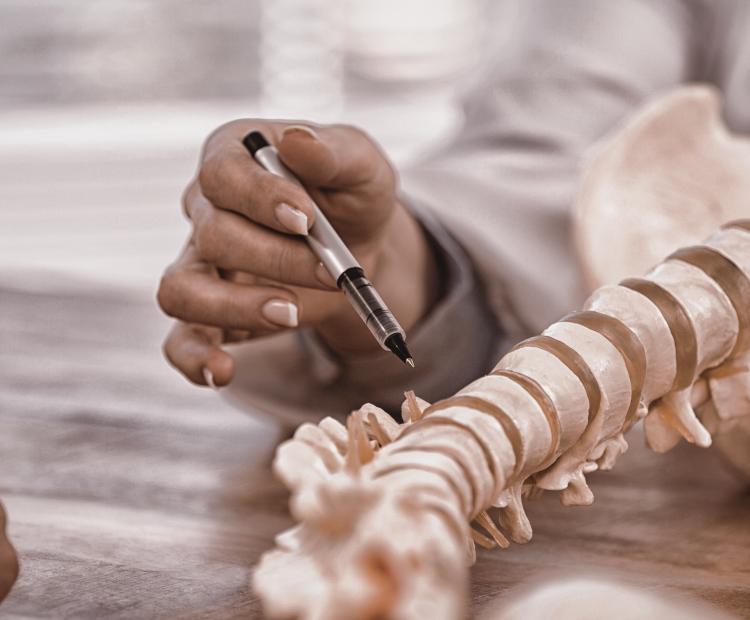If you’ve been considering treatment options for back and neck pain, the number of choices can sometimes feel overwhelming. If your healthcare provider has suggested injections to help manage pain, it can be easy to confuse the terms used and hard to understand the differences between your options. Two treatments that may have been suggested are a medial branch block and facet injection. But what exactly are the differences between the two procedures?
At Advanced Spine and Pain, we routinely perform injections for neck and back pain and have experience with a variety of approaches to manage it. If you are considering medial branch blocks or facet injections for pain relief and would like to learn more, call us today at (480) 573-0130 or contact us online.
Why Am I Having Back or Neck Pain?
A common source of back and neck pain is related to your spinal column, certain joints, and specific nerves. Your spine bones are connected by facet joints, which support movement in multiple directions, and nerve bundles that transmit sensation. The nerves that carry messages from the facet joints are called medial branch nerves.
Inflammation or damage caused by injuries or conditions like arthritis can lead to pain at the facet joints. When in pain, pain signals are transmitted by the medial branch nerves.
What is a Medial Branch Block?
A medial branch block is a type of injection that involves injecting a local anesthetic and sometimes a steroid medication into the area near the medial branch nerves. These medications temporarily prevent the nerves from transmitting pain signals.
Although they are often confused, a medial branch block is not a facet injection. Medial branch blocks are used primarily as diagnostic injections, meaning they do not treat pain long-term. If the medication works, it is likely that your neck or back pain is coming from the medial nerves.
What Are Some Medial Branch Block Side Effects?
Medial branch blocks are minimally invasive procedures and are generally considered low-risk. Some possible side effects include discomfort at the injection site, risk of infection or bleeding, allergic reaction to the medications used, and temporary numbness or weakness that spreads beyond the injection site.
What is a Facet Injection?
A facet joint injection is a type of injection that helps to treat facet joint pain, which is the cause of as many as 45% of cases of back pain1During this procedure, a trained healthcare provider injects a local anesthetic and steroid medication directly into the facet joint. This helps to reduce inflammation and pain in the joint itself.
Facet joint injections have been shown to be effective in as many as 92%2 of cases. They are not a permanent solution for treating chronic pain, but they can help reduce pain so that other treatments, like physical therapy, are more effective.
What Are Some Facet Injection Side Effects?
Like medial branch blocks, facet injections can cause temporary discomfort at the injection site. It is generally a low-risk procedure and side effects are rare3. There is also a small risk of bleeding, infection, and allergic reaction to the medication.
.png)
How Do I Choose a Medial Branch Block vs. Facet Injection?
A certified pain specialist can help you learn which injection is the best option for you. Medial branch blocks do not provide long-term relief and are used for diagnosing the source of pain, whereas facet joint injections can either diagnose or treat back and neck pain.
Medial Branch Block and Facet Injection FAQs
There are a few common questions related to both of these injections that you may be wondering about:
Why do I still have pain after the injection?
If a medial branch block or facet joint injection does not relieve pain, your facet joint or medial nerves may not be the source of the discomfort.
After a facet injection, pain may return briefly when the local anesthetic wears off. However, it should improve as the steroid takes effect.
If you have pain that worsens and does not go away after a medial branch block or facet injection, let your healthcare team know right away.
How long does a medial branch block or facet injection last?
Medial branch blocks usually last a few hours but can sometimes continue to relieve pain for several days. Facet injections last longer, typically weeks to three to four months. Facet injections are often repeated for continued pain relief.
How long do these injections take to perform?
Both medial branch blocks and facet injections are minimally invasive procedures, meaning they are done on an outpatient basis and allow you to go home the same day. Once the site has been cleaned and prepared, the injection only takes a few minutes. Your healthcare team will then observe you for a short while before you return home.
Ready to Learn More About Medial Branch Blocks and Facet Injections?
If you believe a medial branch block or facet joint injection may help address your chronic pain, the expert team at Advanced Spine and Pain can help you weigh all your options for the best results.
Contact us today to learn more, or call us at (480) 573-0130.
References:
- Perolat, R., Kastler, A., Nicot, B., Pellat, J., Tahon, F., Attye, A., Heck, O., Boubagra, K., Grand, S., & Krainik, A. (2018). Facet joint syndrome: from diagnosis to interventional management. Insights Into Imaging, 9(5), 773–789. https://doi.org/10.1007/s13244-018-0638-x
- Peh W. Image-guided facet joint injection. Biomed Imaging Interv J. 2011 Jan-Mar;7(1):e4. doi: 10.2349/biij.7.1.e4. Epub 2011 Jan 1. PMID: 21655113; PMCID: PMC3107686.
- Le, D. T., & Alem, N. (2023, June 20). Facet joint injection. StatPearls - NCBI Bookshelf. https://www.ncbi.nlm.nih.gov/books/NBK572125/
- Log in to post comments

